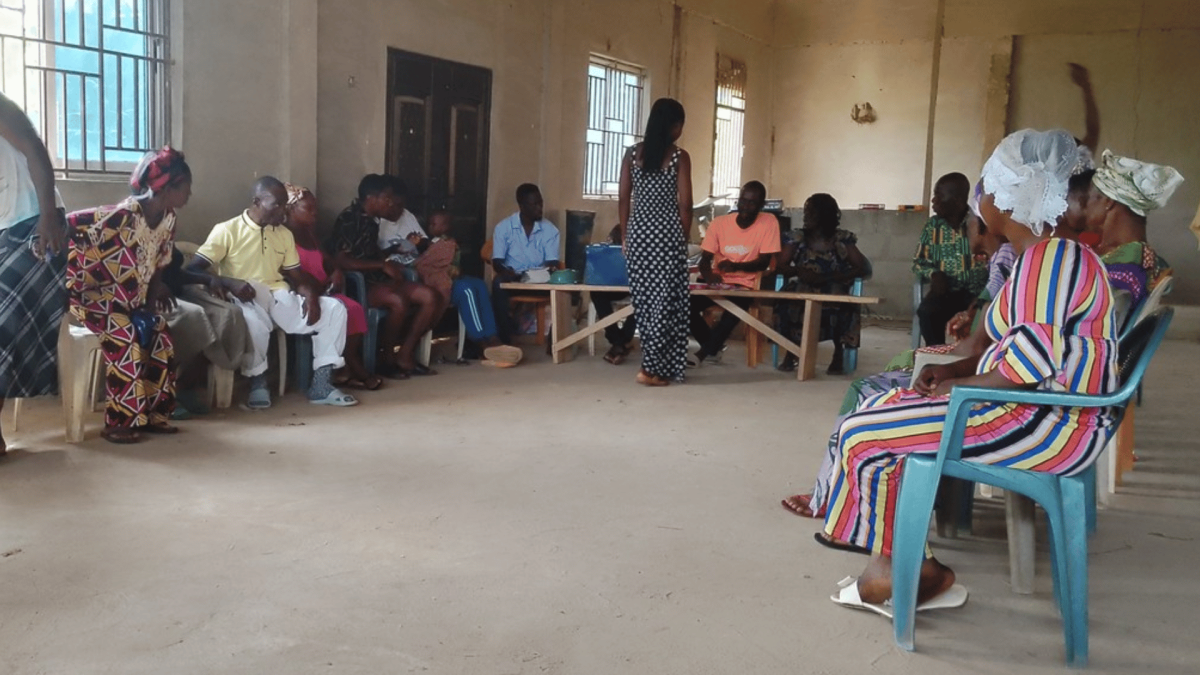Smallholder farmer organisations can harness the collective power of the world’s 1.5 billion smallholders to tackle poverty and inequality, biodiversity loss and climate change. Showcasing KoKoo Pa, a farmers’ association in Ghana, Stephen Mwangi demonstrates how strong internal governance has unlocked KoKoo Pa’s potential to become a trusted development partner.
In the new age of the polycrisis, the world is grappling with multiple challenges, including poverty and inequality, biodiversity loss and climate change. The 2023 UN Sustainable Development Goals (SDGs) Report (PDF) paints a sad picture: 50 per cent of SDG targets are showing insufficient progress, with 30 per cent either stagnant or regressing in critical areas.
Tackling these challenges demands collective action from all stakeholders – and well-governed smallholder farmer organisations, also known as forest and farm producer organisations (FFPOs), are vital actors in this global struggle.
With proper internal governance, FFPOs can unlock ‘hidden handbrakes’ to sustainable development to become recognised by donors and funders as important partners in combating the polycrisis.
Thriving in complexity: why strong smallholder farmer organisations matter
Strong FFPOs are important because they can mobilise the collective action of 1.5 billion smallholder farmers worldwide to deliver local to global public goods. These farmers make a difference locally and are the ‘boots on the ground’: they are both permanently rooted in the landscape and at the forefront of experiencing – and tackling – the consequences of the polycrisis.
Because of this, it is more important than ever to ‘get money where it matters’ if nature and people are to thrive together in complexity.
The problem is that donors and financial institutions often do not regard FFPOs as having the capacity to absorb or manage finance effectively. However, if FFPOs become stronger through better internal governance, they can become a force to be reckoned with.
Strong organisations can no longer be overlooked in project negotiations that come into their ‘space’. Through better internal governance, FFPOs can win their members’ trust, grow their organisations and attract the right partners to help them scale up their activities.
How KoKoo Pa is leveraging its collective power as a smallholder farmer organisation
One excellent example of an FFPO working to address the polycrisis is KoKoo Pa, farmers’ association in Ghana. Founded in 2009 by Ashanti Region cocoa farmers, KoKoo Pa now supports over 8,600 smallholder farmers across four regions and is already marshalling external funding, such as from the Forest and Farm Facility (FFF).
Around 85 per cent of its members boast UTZ certification for sustainable farming, showcasing their commitment to sustainability. KoKoo Pa also holds the vice-presidency of the Ghana Federation of Forest and Farm Producers(GhaFFaP) and leverages this position to provide significant capacity-building support to its members.
KoKoo Pa is tackling the polycrisis with its members through initiatives such as reforestation, agroecological farming practices and mobilising internal finance through village savings and loan associations (VSLAs). With KoKoo Pa’s support, its members are diversifying their incomes and adapting to climate change through the uptake of drought-tolerant crops such as cassava.
However, a key challenge in rolling out and scaling up these services has been access to finance. Kokoo Pa is making efforts to overcome this by sourcing external support from partners such as FFF as well as VSLAs.
What makes KoKoo Pa an important development partner?
There are several reasons why FFPOs like KoKoo Pa can be considered important partners in local development:
- Democratic decision-making: KoKoo Pa has fostered inclusive governance through diverse representation in decision-making. The association actively engages its members through regular meetings and forums to gather input and feedback. Because of this, KoKoo Pa has gained the trust of both its members and external stakeholders.
- Building principles of inclusivity and equity into KoKoo Pa’s governance structure and operation systems also ensures that the most vulnerable and marginalised voices are heard and supported. By embracing diverse perspectives, KoKoo Pa is better equipped to design and implement holistic solutions to the polycrisis.
- Financial accountability: KoKoo Pa’s transparent financial system also builds trust. It allows its members to track resource use, direct funds to combat poverty, preserve biodiversity and address climate change, while also attracting support from partners such as the Forest and Farm Facility, World Cocoa Foundation and the Rainforest Alliance.
- Capacity building: KoKoo Pa has invested in training programmes to educate its members on sustainable agriculture, climate resilience, biodiversity conservation and to strengthen its internal governance.
- Climate resilience as a unifying purpose: the association has demonstrated resilience in the face of climate change by supporting its members with climate-smart farming techniques and biodiversity conservation efforts. Their adaptability and forward-thinking approaches help members navigate the challenges posed by a changing environment.
What can others learn from KoKoo Pa’s success?
KoKoo Pa’s success shows how empowered communities and strong FFPOs – backed by strong internal governance – could drive sustainable change, offering hope for a better world. The association’s success offers several lessons for FFPOs and relevant stakeholders worldwide:
- Emphasise the importance of internal governance: FFPOs need to invest in internal governance structures that promote accountability, inclusivity and resilience
- Take a member-centric approach: FFPOs should prioritise the needs and concerns of their members to address the polycrisis effectively, and
- Invest in collaboration: It is crucial that partners collaborate with and support FFPOs. FFPOs, governments and development partners should work together to harness the diverse strengths of these smallholder farmer organisations in combating poverty, biodiversity loss and climate change. And in turn, good internal governance of FFPOs will help them to leverage external support and expertise.
This piece was initially published on IIED and has been revised to suit Farming First’s editorial guidelines.



